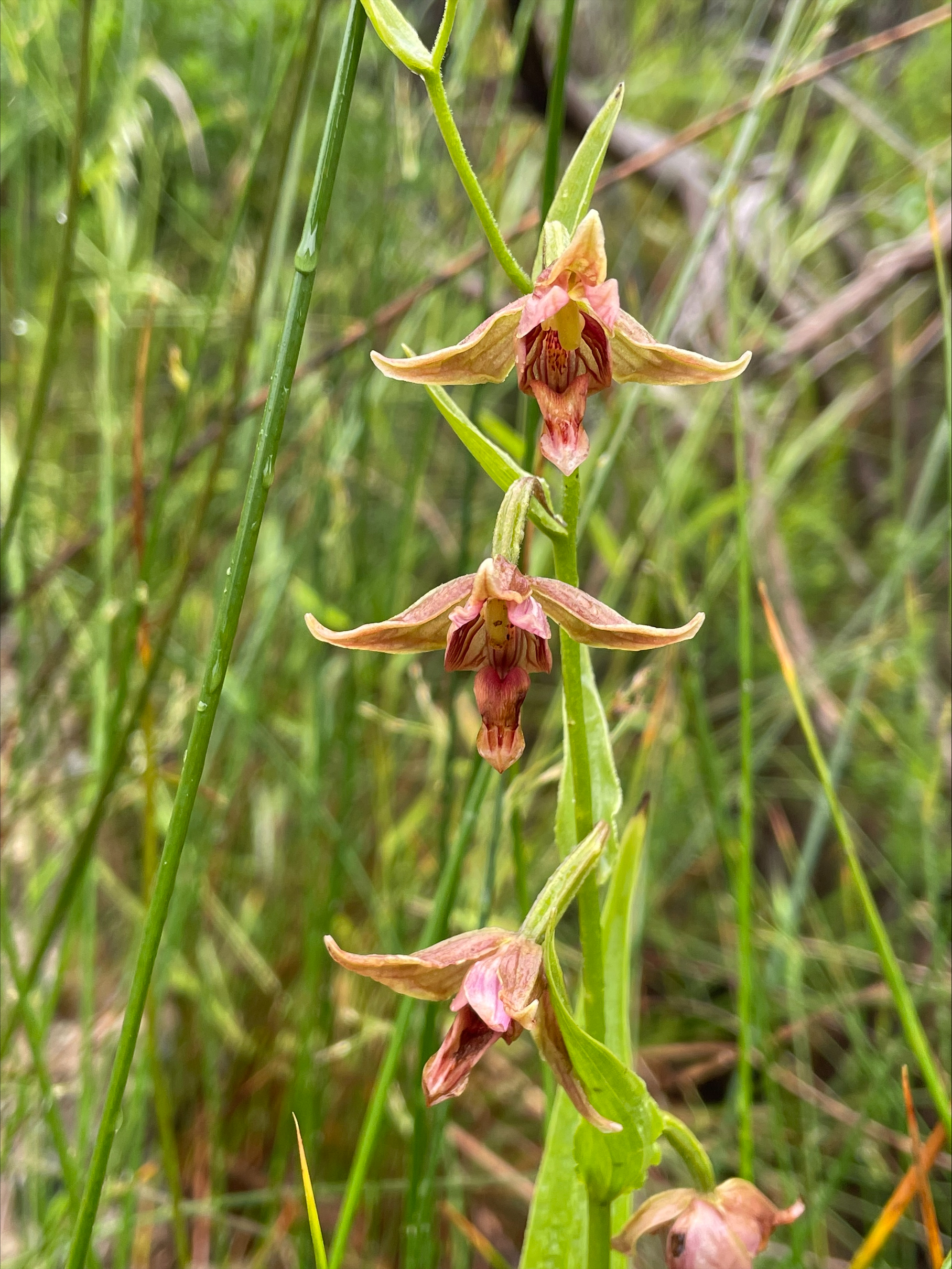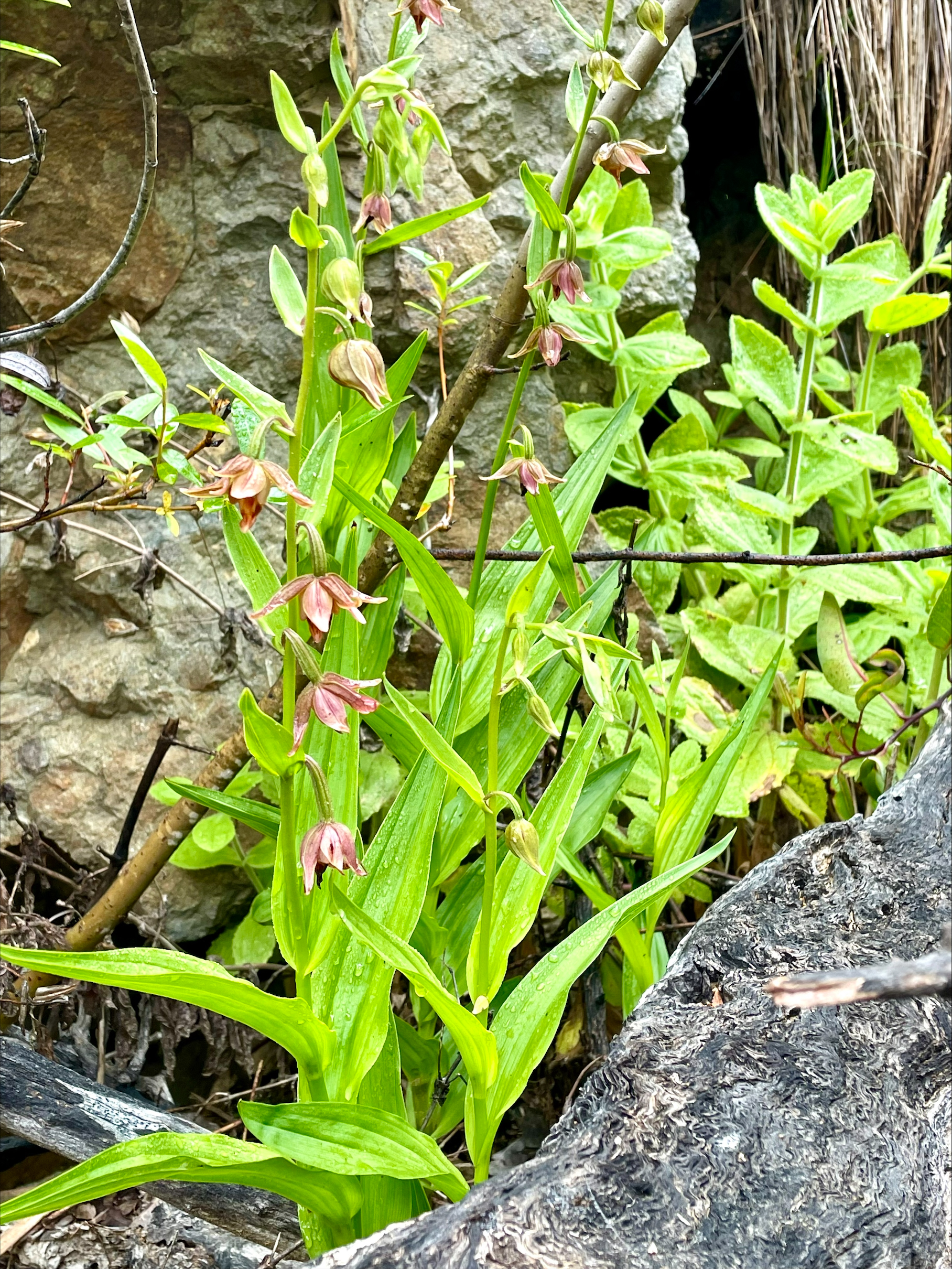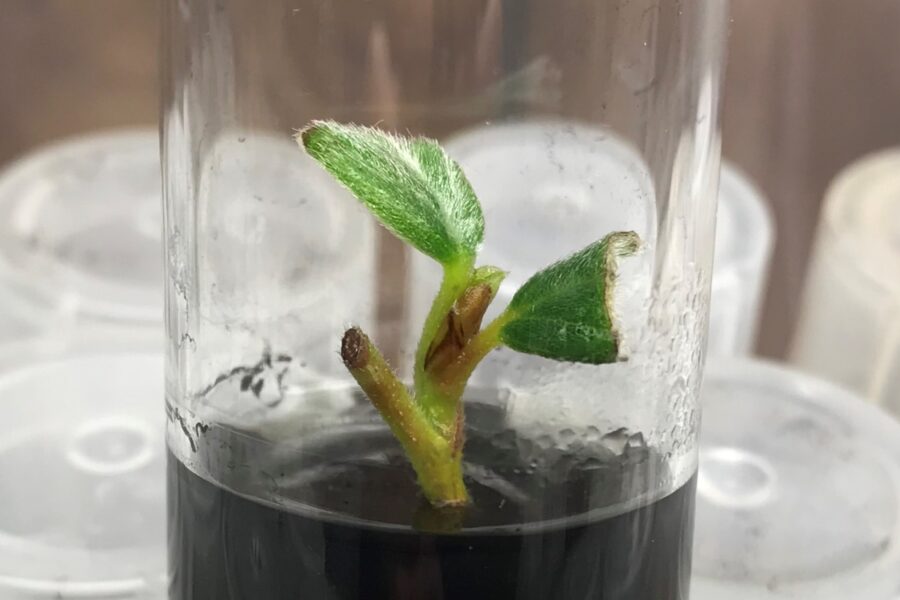Stream Orchid Sighted for First Time Since 2011
Conservation, NewsIn May 2023, a Catalina Island Conservancy plant survey proved especially productive, resulting in the sighting of a plant for the first time since 2011.

Kevin Alison, Rare Plant Ecologist, Catalina Island Conservancy
The Catalina Island Conservancy conservation team has performed surveys throughout the season, capitalizing on the exceptional growth brought on by a rainy winter. In May 2023, one of these surveys proved especially productive, culminating in the first documented sighting of the stream orchid (Epipcatis gigantea) on Catalina in more than a decade.
In the spring, the plant will emerge from the soil with long green leaves and a showy array of light red and yellow flowers streaked with light-brown veins. This species is a true orchid belonging to the Orchidaceae family.
This native perennial species is found in areas with fresh water, so the plant team headed to running water to look for it. It grows in wet areas, like riverbanks, streams, and seeps. So far, scientists have only seen this plant growing along running water with saturated soils. Some plants have also been found happily growing with rhizomes – or root stalks – in running water.
“I like to say they prefer their feet wet and their face to the sun,” said Conservancy Rare Plant Ecologist Kevin Alison.
The stream orchid can be seen across the mainland but is considered uncommon. It was first discovered on Catalina Island in 2011, only found in one canyon.
“Though it doesn’t have a rare species listing, its singular population on Catalina warrants conservation efforts to ensure it is not lost from the Island,” said Alison.
He noted that the few plants that he saw appear healthy, though they are still within a single watershed and in smaller numbers than described in 2011.
“To ensure continued conservation of this plant, the team collected rhizomes cuttings from each population to grow them at the Ackerman Native Plant Nursery,” explained Alison. “This method is called ex-situ conservation, to ensure we have a healthy representation of plants outside of the wild population to use as a resource for restoration.”


